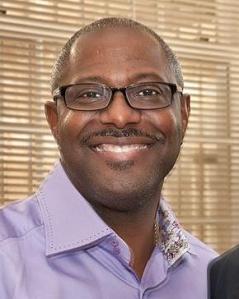 I had lunch with my friend Kendrick Curry yesterday. Kendrick is pastor of the historic Pennsylvania Avenue Baptist Church in Washington, DC, and when I call him “my friend” what I mean is that he and I get along easily and have a lot in common and have often agreed that we would surely be good friends if we ever had a chance to spend time together. So when I realized I was going to be in Washington during the lunch hour I called and asked if he could join me.
I had lunch with my friend Kendrick Curry yesterday. Kendrick is pastor of the historic Pennsylvania Avenue Baptist Church in Washington, DC, and when I call him “my friend” what I mean is that he and I get along easily and have a lot in common and have often agreed that we would surely be good friends if we ever had a chance to spend time together. So when I realized I was going to be in Washington during the lunch hour I called and asked if he could join me.
He said he could.
I met him at a place called CHOP’T in Chinatown where a hive of worker bees behind a long counter take your order and then collect and chop and toss the ingredients of your salad into a bowl with the kind of showmanship that makes you think there should be drum rolls and cymbal crashes after each move. There weren’t, but the place was packed, and so noisy that I’m still not sure what I ordered.
Whatever it was, it was delicious.
Kendrick and I sat side-by-side at a narrow counter in the front window, looking out at the city of Washington walking past us on the 7th Street sidewalk as the bright, midday sun poured in. I dug into my salad and Kendrick dug into the conversation at a level most people wouldn’t attempt, “cutting to the chase” as they say, of what’s going on with the church in America today. In one way or another that’s what we talked about the rest of the hour, each of us adding our thoughts about what is most essential for the church’s survival and success.
“For me,” I said, “it comes down to Jesus. I believe he is the Way, the Truth, and the Life. I’ve come to love him and trust him. And even if the Way he is should lead me to a locked door (though I don’t believe it will) I can’t imagine that I will ever regret following him.”
I told Kendrick about an article I’d read by Susan Brooks Thistlethwaite, who said that “The conservative Christian view of Jesus in the New Testament is framed not around the person and work of Jesus, but around Jesus’ death, resurrection, and return in judgment on sin (the Book of Revelation). This explains the astonishing disinterest in his life and teachings.” I pointed out that the Apostle Paul refers to the earthly ministry of Jesus only once in his letters that I know of, when he talks about the Last Supper in 1 Corinthians 11:23-26. If you were in a church where most of the preaching came from the Epistles and not the Gospels, you might begin to believe that the life and teachings of Jesus weren’t all that important. You might focus only on the cross, and not the Kingdom.
But if you read the Gospels even casually you begin to see how important the Kingdom was to Jesus. He mentions it some 120 times in the Gospels—far more than anything else. He wants it to come, on earth as it is in heaven. He teaches his disciples to pray for that. He shows them how to work for that. It’s the reason we have spent most of the last year trying to bring the Kingdom of Heaven to Richmond, Virginia. I asked Kendrick, “If we are going to call ourselves followers of Jesus shouldn’t we care about the things he cares about? Shouldn’t we do what he tells us to do?”
“Maybe it’s time to re-boot Christianity,” Kendrick said in the end, and I smiled at the thought of pulling the plug on all that has been added to our faith through the centuries—all the rituals, doctrines, divisions, and denominations—waiting a few seconds, and then plugging it back in again:
And starting with Jesus.
